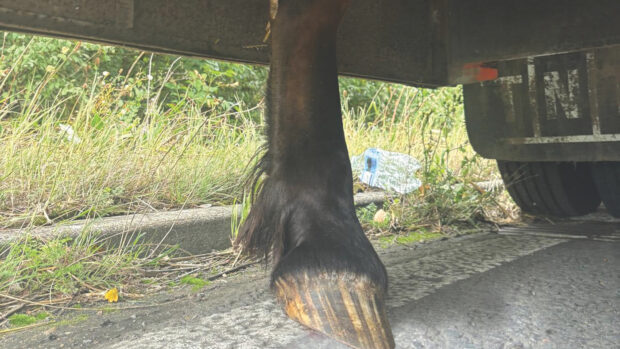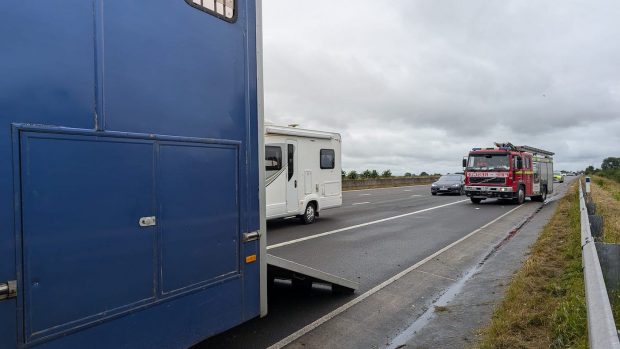Most horses travel at some point, but for competition horses it is a regular occurrence, which breaks the daily routine. The diet might change subtly, right down to the quality of grass the horse nibbles when led out, and there are also the effects of a new environment as well as the journey itself.
Horses work to keep balanced when on the move, which uses up calories and can contribute to dehydration. The better the driving, the smaller the effort require on the horse’s part.
Dehydration affects performance, and travelling can cause this, especially on hot days or when the horse refuses to drink or eat in transit. Always offer water during the journey – a sloppy mash of bran or soaked sugar beet pulp may do the trick if water from a bucket is rejected. Give water regularly throughout the day of the competition, too.
Any journey, followed by he excitement of competition, causes an elevation of the stress hormone cortisol in the blood. High levels of cortisol suppress the immune system, and so can give bugs an opportunity to take hold.
This is most likely to occur in the lungs because of restricted airflow and the way the horse is tied during transportation. When horses can drop their heads, natural clearing of dust, spores and other respiratory challenges takes place. When the horse’s head is held up, this cannot happen and airway clearance can be reduced by as much as 50%.
The air quality within a horsebox or trailer is another important factor. In these confined and sometimes humid spaces, dust, spores, ammonia and bacteria are all present. These concentrations can be reduced by good ventilation and maintaining as “clean” an environment as possible.
This article first appeared in H&H 6th May issue




